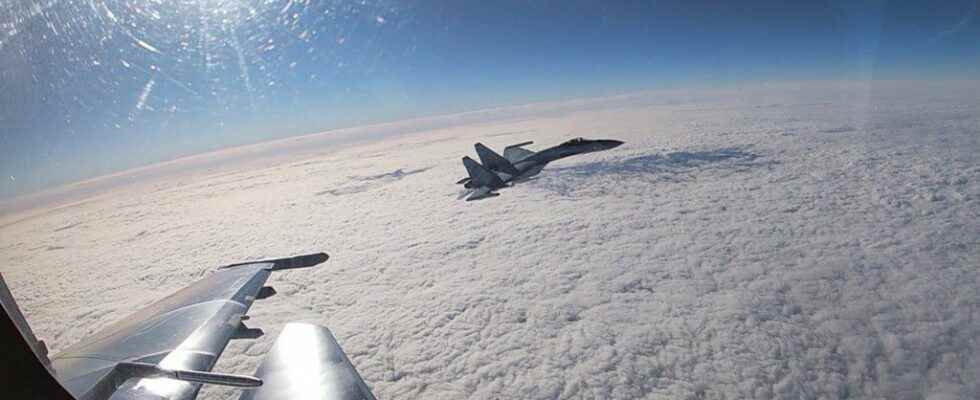Relatively rare in the Ukrainian skies since the start of the conflict, will Russian planes make a comeback? With the resumption of offensive operations by Moscow, the hypothesis of an intensification of their use is becoming more and more insistent. Quoting two Western intelligence officials, the FinancialTimes thus affirmed on February 14 that Russia would be in the process of amassing “planes near the border with Ukraine” with a view to “launching its jets and helicopters into the war”. Information confirmed, two days later, by a source close to the Russian Ministry of Defense, to the opposition media Important Stories.
On paper, the support of the air force could constitute a support of weight for Russian ground forces always in difficulty on the ground. “Better use of air weapons would improve the effectiveness of ground forces, explains Xavier Tytelman, former military aviator and aeronautical consultant for Air & Cosmos. In theory, this could give Russian forces the ability to destroy ‘important Ukrainian defense infrastructure or to support their ground offensives.’ Appreciable help when, according to the British Ministry of Defence, Russian forces have recorded between 175,000 and 200,000 losses (dead, wounded, captured) since the start of the conflict, including 40,000 to 60,000 dead.
A relatively preserved aviation
Contrary to its army largely tested by a year of war, Moscow can count on relatively preserved air forces. “Throughout Russia, Russian Aerospace Forces likely maintain a largely intact fleet of around 1,500 crewed military aircraft, despite losing more than 130 since the start of the invasion,” British intelligence said in a statement. a note published on February 16. In fact, these have been little used in Ukraine.
“The Russians never succeeded in completely destroying the Ukrainian ground-air defense, which prevented them from making full use of their aviation, points out Jean-Christophe Noël, a former fighter pilot and associate researcher at the French Institute of Relations Every time they tried to fly over Ukrainian territory, they suffered losses.” So that to protect its precious devices, Moscow has mainly relied on sending missiles or drones to carry out its strike campaigns.
Could the Russian general staff review its plans? During a press conference held on February 14 in Brussels, US Secretary of Defense Lloyd Austin said he did not see any immediate signs “of a massive air attack”. Recognizing nevertheless a possible “threat”, the general affirmed to want to continue to reinforce the capacities of anti-aircraft defense of Ukraine “in the event that Russia would try to introduce its air force in this fight.” A statement shared two days later by the British Ministry of Defense.
“Unsustainable aircraft losses”
Beyond its S-300s, kyiv has so far been able to count on the delivery of multiple Western systems. Thus American Patriot anti-aircraft batteries, French Crotales or German Gepard anti-aircraft armored vehicles. “Given the strengthening of Ukrainian capabilities, Russia’s mastery of the sky seems less credible every day, gauge Xavier Tytelman. Therefore, it is unlikely that their planes will manage to be as decisive as in previous conflicts, such as Syria , where they could fly without fear of being shot down.” In 2015, the use of Russian aviation against Syrian rebels proved crucial for the survival of Bashar al-Assad’s regime.
On the other hand, “Russian forces would likely suffer unsustainable aircraft losses if they committed aircraft to prolonged combat operations, such as a strategic bombing campaign or close air support”, estimates in a recent report the Institute for the Study of War, a Washington-based think tank. Is Russia ready to pay the price? “Replacing lost devices is very expensive, and it is a complex process from an industrial point of view, which necessarily takes time, underlines Jean-Christophe Noël. However, to ensure its own defense, Russia needs retain a significant force and cannot afford to emerge from this war with a reduced number of aircraft.” At the risk of weakening its fleet for many years.
